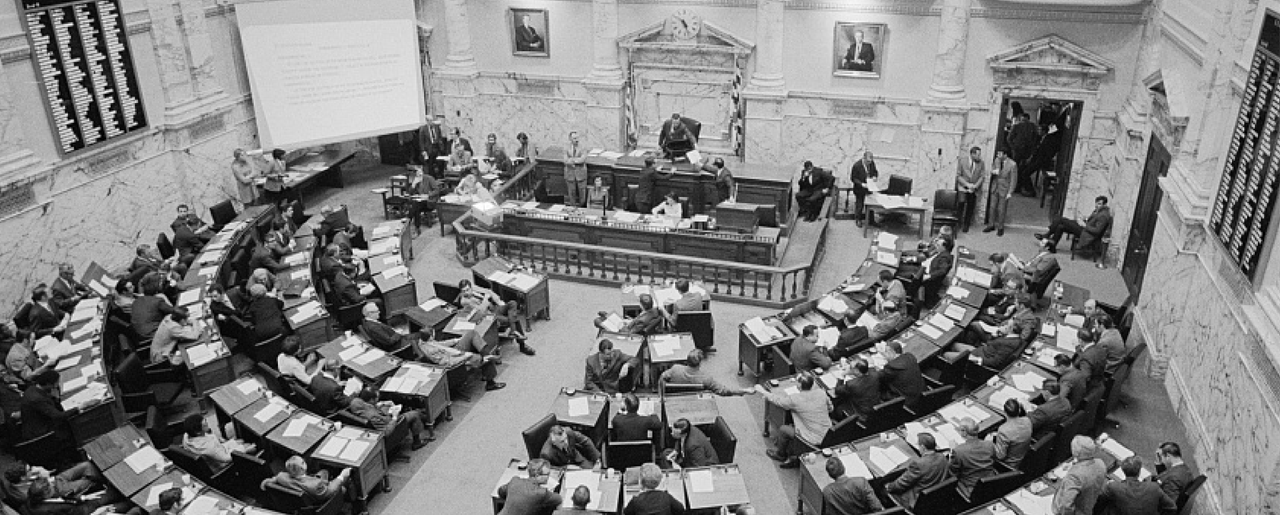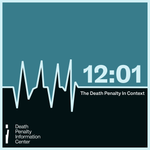Below are important pieces of death penalty legislation that have recently passed or are currently being considered. (DPI welcomes additions and suggestions via email.)
Session dates via StateScape.
State names link to state legislative homepage.
Open Sessions
Alabama
Regular: February 4, 2025 — May 15, 2025
| Number(s) | Description | Events | Type | Status |
|---|---|---|---|---|
|
Would require any person age 18 or older convicted of rape in the first degree or sodomy in the first degree of a victim less than age six to be sentenced to death or life without parole. If the person convicted is less than age 18 then they would be sentenced to either life without parole or life. |
|
Expands Death Eligibility | Pending |
Alaska
Regular: January 21, 2025 — May 20, 2026
Arizona
Regular: January 13, 2025 — April 26, 2025
| Number(s) | Description | Events | Type | Status |
|---|---|---|---|---|
|
Would abolish the death penalty |
|
Abolition Bill | Pending |
|
Would replace lethal injection with firing squad as the execution method; would only allow defendants sentenced before November 23, 1992 to have the choice between firing squad and lethal gas. |
|
Modifies Execution Protocol | Pending |
Arkansas
Regular: January 13, 2025 — April 11, 2025
| Number(s) | Description | Events | Type | Status |
|---|---|---|---|---|
|
Would add execution by nitrogen gas as an execution method. |
|
Modifies Execution Protocol | Enacted |
|
Would create the offense of capital rape, which includes having sex with a person 13 years or younger. |
|
Expands Death Eligibility | Pending |
California
Regular: December 2, 2024 — November 30, 2026
| Number(s) | Description | Events | Type | Status |
|---|---|---|---|---|
|
Modifies and adds to procedures for relief under the 2020 Racial Justice Act for individuals who have actions pending before the trial or appellate court, who are incarcerated, or post-incarceration. If racial bias is found in an individual's case, the person is ineligible for the death penalty. |
|
Modifies Appeals Process | Pending |
|
Any individual accused of racial bias or animus under the 2020 Racial Justice Act shall receive notice of the accusation and be given the right to representation during the hearing to question the sufficiency of the evidence against the individual. |
|
Modifies Appeals Process | Pending |
Colorado
Regular: January 8, 2025 — May 7, 2025
Connecticut
Regular: January 8, 2025 — June 4, 2025
| Number(s) | Description | Events | Type | Status |
|---|---|---|---|---|
|
Would provide that certain persons who are licensed, registered or doing business in this state shall not manufacture, compound, sell, test, distribute, dispense or supply any drug or medical device for the purpose of executing the death penalty. |
|
Other | Pending |
|
Would restore the death penalty. |
|
Reinstatement Bill | Pending |
Delaware
Regular: January 14, 2025 — June 30, 2026
| Number(s) | Description | Events | Type | Status |
|---|---|---|---|---|
|
The first leg of a constitutional amendment to prohibit the imposition of the death penalty. |
|
Abolition Bill | Pending |
Florida
Regular: March 4, 2025 — May 2, 2025
| Number(s) | Description | Events | Type | Status |
|---|---|---|---|---|
|
Would expand the state's available method of executions to include "a method not deemed unconstitutional." |
|
Modifies Execution Protocol | Pending |
|
Would expand the state's available method of executions to include "a method not deemed unconstitutional." |
|
Modifies Execution Protocol | Pending |
|
Would create the offense of capital sex trafficking. |
|
Expands Death Eligibility | Pending |
|
Would expand aggravating circumstances to include if the victim was "gathered with one or more persons for a school activity, religious activity, or public government meeting." |
|
Expands Aggravating Circumstances | Pending |
|
Would expand aggravating circumstances to include if the victim was "gathered with one or more persons for a school activity, religious activity, or public government meeting." |
|
Expands Aggravating Circumstances | Pending |
Georgia
Regular: January 13, 2025 — April 2, 2026
| Number(s) | Description | Events | Type | Status |
|---|---|---|---|---|
Would provide pretrial hearings for capital defendants to raise intellectual disability claims; would lower the standard of proof from "beyond a reasonable doubt" to a “preponderance of evidence," in line with other state standards. |
|
Limits Death Eligibility | Pending | |
|
Would prohibit the imposition of the death penalty in cases where the only evidence is the testimony of a single eyewitness |
|
Limits Death Eligibility | Pending |
Hawaii
Regular: January 15, 2025 — May 1, 2026
Idaho
Regular: January 6, 2025 — April 10, 2025
| Number(s) | Description | Events | Type | Status |
|---|---|---|---|---|
|
Would make firing squad the state's primary method of execution, thus making lethal injection the secondary option. |
|
Modifies Execution Protocol | Enacted |
Illinois
Regular: January 8, 2025 — January 3, 2026
Indiana
Regular: January 8, 2025 — April 29, 2025
| Number(s) | Description | Events | Type | Status |
|---|---|---|---|---|
|
Would abolish the death penalty and commute the death sentences of current prisoners to life without parole. Would also allow defendants in cases where the state is seeking life without parole to file a petition alleging intellectual disability; in instances where the defendant is found to have an intellectual disability, then the court would not be able to impose a sentence of life without parole. |
|
Retroactive Abolition Bill | Pending |
|
Redefines abortion as first-degree murder of a human being, making it eligible for the death penalty as long as there is at least one aggravating factor (e.g. victim under 12 years of age). |
|
Expands Death Eligibility | Pending |
Iowa
Regular: January 13, 2025 — May 30, 2026
| Number(s) | Description | Events | Type | Status |
|---|---|---|---|---|
|
Would reinstate the death penalty for murder in the first degree of a peace officer on duty. |
|
Reinstatement Bill | Pending |
Kansas
Regular: January 13, 2025 — May 5, 2026
| Number(s) | Description | Events | Type | Status |
|---|---|---|---|---|
Prohibiting second and successive motions and ineffective counsel claims in habeas corpus actions and providing for direct appeal to the supreme court in habeas corpus appeals filed by inmates sentenced to death. |
|
Modifies Appeals Process | Pending | |
|
Would prohibit the imposition of a death sentence for crimes committed after July 1, 2025 and creates the crime of aggravated murder. |
|
Abolition Bill | Pending |
|
Would prohibit the imposition of a death sentence for crimes committed after July 1, 2025 and creates the crime of aggravated murder. |
|
Abolition Bill | Pending |
Kentucky
Regular: January 7, 2025 — March 28, 2025
| Number(s) | Description | Events | Type | Status |
|---|---|---|---|---|
|
Would abolish the death penalty and replace it with life imprisonment without parole for those currently sentenced to death. |
|
Retroactive Abolition Bill | Session Closed Without Passage |
|
Would make rape in the first degree, sodomy in the first degree, and sexual abuse in the first degree capital offenses when the victim is under 12 years old. |
|
Expands Death Eligibility | Session Closed Without Passage |
|
Would abolish the death penalty and resentence those currently sentenced to death to terms of life without parole. |
|
Retroactive Abolition Bill | Session Closed Without Passage |
|
Would abolish the death penalty and resentence those currently sentenced to death to terms of life without parole. |
|
Retroactive Abolition Bill | Session Closed Without Passage |
|
Would expand aggravating circumstances to include sexual abuse of a corpse. |
|
Expands Aggravating Circumstances | Session Closed Without Passage |
Maine
Regular: December 4, 2024 — May 8, 2026
Maryland
Regular: January 8, 2025 — April 7, 2025
Massachusetts
Regular: January 1, 2025 — January 1, 2027
Michigan
Regular: January 8, 2025 — December 31, 2026
Minnesota
Regular: January 14, 2025 — May 18, 2026
Mississippi
Regular: January 7, 2025 — April 6, 2025
| Number(s) | Description | Events | Type | Status |
|---|---|---|---|---|
|
Would modify the process of selecting execution method. Specifically would add the Commissioner of the Department of Public Safety and the district attorney of the county in which the conviction occurred to the group of individuals (currently the Commissioner, Deputy Commissioner for Finance and Administration, Deputy Commissioner for Institutions of the Mississippi Department of Corrections) responsible for voting on execution method. Would add cost considerations as a deciding factor. Whoever is present will vote and majority decision dictates execution method. If passed would be effective July 1, 2025. |
|
Modifies Execution Protocol | Failed |
|
Would make rape of a child under 12 years old that damages the child's sexual organs a death-elgible offense. |
|
Expands Death Eligibility | Failed |
Missouri
Regular: January 8, 2025 — May 30, 2025
| Number(s) | Description | Events | Type | Status |
|---|---|---|---|---|
|
Would abolish the death penalty and resentence death-sentenced prisoners to terms of life imprisonment without parole. |
|
Retroactive Abolition Bill | Pending |
|
Would abolish the death penalty and resentence death-sentenced prisoners to terms of life imprisonment without parole. |
|
Retroactive Abolition Bill | Pending |
|
Would abolish the death penalty and resentence death-sentenced prisoners to terms of life imprisonment without parole. |
|
Retroactive Abolition Bill | Pending |
|
Would make statutory rape in the first degree and sexual trafficking of a child in the first degree death-eligible crimes. If enacted, it would only apply to offenses committed on or after August 28, 2025. |
|
Expands Death Eligibility | Pending |
|
Would repeal the death penalty for murder in first degree. |
|
Abolition Bill | Pending |
|
Would make sodomy in the first degree of a child under 12 years of age a death-eligible offense. |
|
Expands Death Eligibility | Pending |
|
Would modify provisions relating to postconviction relief. |
|
Modifies Appeals Process | Pending |
|
Would modify provisions related to the appointment of counsel for postconviction relief of sentences of death. |
|
Modifies Appeals Process | Pending |
Montana
Regular: January 6, 2025 — May 9, 2025
| Number(s) | Description | Events | Type | Status |
|---|---|---|---|---|
|
Would revise the existing execution protocol to allow for an "intravenous injection of a substance or substances in a lethal quantity" that is "sufficient to cause death." The current protocol requires the "administration of a continuous intravenous injection a lethal quantity of an ultra-fast-acting barbiturate in combination with a chemical paralytic agent."
|
|
Modifies Execution Protocol | Pending |
Nebraska
Regular: January 8, 2025 — May 29, 2026
| Number(s) | Description | Events | Type | Status |
|---|---|---|---|---|
|
Would provide for execution by nitrogen hypoxia. |
|
Modifies Execution Protocol | Pending |
|
A constitutional amendment to abolish the death penalty and commute those with death sentences to a sentence of life imprisonment. |
|
Retroactive Abolition Bill | Pending |
Nevada
Regular: February 3, 2025 — June 2, 2025
| Number(s) | Description | Events | Type | Status |
|---|---|---|---|---|
|
Would extend the timeframe for which an execution date is set after judgment from 60-90 days to 180-270 days. |
|
Modifies Execution Protocol | Pending |
New Hampshire
Regular: January 8, 2025 — June 30, 2025
New Jersey
Regular: January 9, 2024 — January 13, 2026
| Number(s) | Description | Events | Type | Status |
|---|---|---|---|---|
Proposes constitutional amendment to restore the death penalty under certain circumstances. |
|
Reinstatement Bill | Pending | |
|
Would restore the death penalty for certain murders. |
|
Reinstatement Bill | Pending |
New York
Regular: January 8, 2025 — January 1, 2027
| Number(s) | Description | Events | Type | Status |
|---|---|---|---|---|
|
To restore the death penalty in New York State and make it an available sentence for those convicted of Murder in the First Degree for the intentional killing of police officers, specified peace officers, and first responders, the intentional killing of two or more people, the intentional killing of another person as a hate crime, and the intentional killing of another person in the furtherance of terrorism. |
|
Reinstatement Bill | Pending |
|
Would provide that sentence for first degree murder of a police officer, peace officer, or correctional officer be death or life imprisonment without parole. |
|
Reinstatement Bill | Pending |
|
Would make certain provisions of murder in the first degree eligible for either a death sentence or life without parole. |
|
Reinstatement Bill | Pending |
North Carolina
Regular: January 8, 2025 — July 31, 2026
| Number(s) | Description | Events | Type | Status |
|---|---|---|---|---|
|
Would repeal the death penalty and resentence all current death-sentenced prisoners to terms of life without parole. |
|
Retroactive Abolition Bill | Pending |
|
Would make electrocution the default method of execution, with firing squad or lethal injection available as alternative choices. Prisoners must convey their selection in writing 14 days before execution date or it is considered waived. |
|
Modifies Execution Protocol | Pending |
North Dakota
Regular: January 7, 2025 — May 2, 2025
Ohio
Regular: January 6, 2025 — December 31, 2026
| Number(s) | Description | Events | Type | Status |
|---|---|---|---|---|
|
Would add nitrogen hypoxia as an execution method. |
|
Modifies Execution Protocol | Pending |
|
Would abolish the death penalty; modify the number of jurors that may be challenged in cases where a defendant may be sentenced to life imprisonment; and prohibit public funding for and insurance coverage of the use of lethal injection drugs in nontherapeutic abortions and assisting suicide. |
|
Abolition Bill | Pending |
Oklahoma
Regular: February 3, 2025 — May 30, 2026
| Number(s) | Description | Events | Type | Status |
|---|---|---|---|---|
|
Shall sentence foreign-born persons, who at the time of the incident were present in the United States without valid immigration documentation or violated the terms of his or her admission to the United States, convicted of first degree murder to death. |
|
Other | Pending |
|
Would stay the imposition of new execution dates and vacate all currently scheduled dates; legislature would retain the authority to lift the moratorium |
|
Other | Pending |
|
Modifies the process to determine mental competency for execution, including requiring the trial court to render a decision before the scheduled execution date unless the Court of Criminal Appeals issues a stay of execution. |
|
Other | Pending |
|
Would create the Death Penalty Moratorium Act, which would prohibit the imposition of new execution dates and vacate all currently scheduled dates. Would create the Death Penalty Reform Task Force. |
|
Other | Pending |
Oregon
Regular: January 21, 2025 — June 30, 2025
| Number(s) | Description | Events | Type | Status |
|---|---|---|---|---|
|
Removes statutory provisions realting to death penalty if SJR 16 is approved by the people at the November 2026 general election. |
|
Abolition Bill | Pending |
|
Proposes a constitutional amendment prohibiting the death penalty to be voted on by the people at the next regular general election. |
|
Abolition Bill | Pending |
|
Would require the Department of Corrections study and report on the facilities used to carry out the death penalty in Oregon |
|
Other | Pending |
Pennsylvania
Regular: January 7, 2025 — November 30, 2026
Rhode Island
Regular: January 7, 2025 — June 30, 2025
South Carolina
Regular: January 14, 2025 — June 30, 2026
| Number(s) | Description | Events | Type | Status |
|---|---|---|---|---|
|
Redefines person to include "an unborn child at every stage of development from fertilization until birth," and allows all state homicide and assault provisions to apply. |
|
Expands Death Eligibility | Pending |
|
Would allow the Attorney General or his designee to be present as execution witnesses. |
|
Modifies Execution Protocol | Pending |
|
Would allow the Attorney General or his designee to be present as execution witnesses. |
|
Modifies Execution Protocol | Pending |
|
Would allow the Attorney General or his designee to be present as execution witnesses. |
|
Modifies Execution Protocol | Pending |
South Dakota
Regular: January 14, 2025 — March 31, 2025
| Number(s) | Description | Events | Type | Status |
|---|---|---|---|---|
|
Would repeal the death penalty |
|
Abolition Bill | Pending |
Tennessee
Regular: January 14, 2025 — April 24, 2026
| Number(s) | Description | Events | Type | Status |
|---|---|---|---|---|
Would allow members of the general assembly to be present for executions |
|
Modifies Execution Protocol | Pending |
Texas
Regular: January 14, 2025 — June 2, 2025
| Number(s) | Description | Events | Type | Status |
|---|---|---|---|---|
Would abolish the death penalty |
|
Abolition Bill | Pending | |
|
Would abolish the death penalty |
|
Abolition Bill | Pending |
|
Would prohibit the death penalty for those younger than 21 years |
|
Limits Death Eligibility | Pending |
|
Would expand the state supreme court’s jurisdiction when conflicts arise related to Sec. 22.001 (a-1). |
|
Modifies Appeals Process | Pending |
|
Would modify certain capital sentencing procedures related to the jury. |
|
Modifies Sentencing Process | Pending |
|
Would prohibit the death penalty for people with intellectual disabilities; allow death-sentenced prisoners with intellectual disabilities to challenge their conviction during the first year; and modify other capital procedures. |
|
Limits Death Eligibility | Pending |
|
Modifies policies, standards, and mechanisms related to providing legal representation to indigent defendants in certain capital cases. |
|
Other | Pending |
|
Would prohibit the death penalty for people with intellectual disabilities; allow death-sentenced prisoners with intellectual disabilities to challenge their conviction during the first year; and modify other capital procedures. |
|
Limits Death Eligibility | Pending |
|
Would prohibit the death penalty for those with severe mental illness at the time of the crime. Defines "severe mental illness" as a "person who has schizophrenia or a schizoaffective disorder and, as a result of that disorder, has active psychotic symptoms that substantially impair the person's capacity..." |
|
Limits Death Eligibility | Pending |
US Federal Government
Regular: January 3, 2025 — October 30, 2026
| Number(s) | Description | Events | Type | Status |
|---|---|---|---|---|
|
Would provide add the intentional killing of a law enforcement officer as an aggravating factor |
|
Expands Aggravating Circumstances | Pending |
|
Would expand aggravating factors to include killing or targeting a law enforcement officer, firefighter, or other first responder. |
|
Expands Aggravating Circumstances | Pending |
Vermont
Regular: January 8, 2025 — May 8, 2026
Washington
Regular: January 13, 2025 — April 26, 2026
West Virginia
Regular: February 12, 2025 — April 12, 2025
| Number(s) | Description | Events | Type | Status |
|---|---|---|---|---|
Would reinstate the death penalty for the intentional killing of a law-enforcement officer. |
|
Reinstatement Bill | Pending | |
|
Would reinstate the death penalty and outlines 13 aggravating factors and 8 mitigating factors |
|
Reinstatement Bill | Pending |
Wisconsin
Regular: January 6, 2025 — December 31, 2026
Upcoming Sessions
Sessions Closed This Year
California
Special: December 2, 2024 — January 31, 2025
Florida
Special: January 27, 2025 — January 28, 2025
| Number(s) | Description | Events | Type | Status |
|---|---|---|---|---|
Requires a court “sentence a defendant who is an unauthorized alien and who is convicted or adjudicated guilty of a capital felony to a sentence of death.” |
|
Other | Session Closed Without Passage |
Florida
Special: February 11, 2025 — February 13, 2025
| Number(s) | Description | Events | Type | Status |
|---|---|---|---|---|
|
"The bill creates s. 921.1426, F.S., to provide that the court must sentence a defendant who is an unauthorized alien and who is convicted or adjudicated guilty of a capital felony to a sentence of death." |
|
Other | Enacted |
|
Mandates the death penalty for "unauthorized aliens" who are convicted of a capital felony. |
|
Other | Session Ended |
Illinois
Regular: January 11, 2023 — January 5, 2025
| Number(s) | Description | Events | Type | Status |
|---|---|---|---|---|
|
Would allow the death penalty for murders committed in or on the grounds of a religious institution, public or private school, community college, college, university, child care facility, or a public place by someone at least 18 years of age. |
|
Reinstatement Bill | Session Closed Without Passage |
Would reinstate the death penalty. |
|
Reinstatement Bill | Session Closed Without Passage | |
|
Would reinstate the death penalty for first degree murder of a peace officer. |
|
Reinstatement Bill | Session Closed Without Passage |
|
Would reinstate the death penalty and related procedures for the killing of a police officer in the course of official duties. |
|
Reinstatement Bill | Session Closed Without Passage |
|
Would reinstate the death penalty for the killing of a person in or on the grounds of a religious institution, public or private school, community college, college, university, child care facility, or a public place. Reestablishes related capital procedures. |
|
Reinstatement Bill | Session Closed Without Passage |
|
Would reinstate the death penalty as punishment for the murder of a peace officer or correction facility employee killed while performing their duties and reestablishes capital punishment processes. |
|
Reinstatement Bill | Session Closed Without Passage |
|
Updates existing criminal codes to remove mentions related to capital punishment. |
|
Other | Enacted |
|
Would establish the Capital Crimes Litigation Act of 2024, which would reinstate the death penalty for first-degree murder of a peace officer, firefighter, emergency medical personnel, or correctional facility employee killed while performing official duties and accordingly establish legal processes for capital representation and appeals. |
|
Reinstatement Bill | Session Closed Without Passage |
|
Would eliminate a provision abolishing the death penalty, modify aggravating factors, and transfer remaining funds from the Death Penalty Abolition Fund to reestablish a Capital Litigation Trust Fund. |
|
Reinstatement Bill | Session Closed Without Passage |
Kentucky
Regular: January 7, 2025 — March 28, 2025
| Number(s) | Description | Events | Type | Status |
|---|---|---|---|---|
|
Would abolish the death penalty and replace it with life imprisonment without parole for those currently sentenced to death. |
|
Retroactive Abolition Bill | Session Closed Without Passage |
|
Would make rape in the first degree, sodomy in the first degree, and sexual abuse in the first degree capital offenses when the victim is under 12 years old. |
|
Expands Death Eligibility | Session Closed Without Passage |
|
Would abolish the death penalty and resentence those currently sentenced to death to terms of life without parole. |
|
Retroactive Abolition Bill | Session Closed Without Passage |
|
Would abolish the death penalty and resentence those currently sentenced to death to terms of life without parole. |
|
Retroactive Abolition Bill | Session Closed Without Passage |
|
Would expand aggravating circumstances to include sexual abuse of a corpse. |
|
Expands Aggravating Circumstances | Session Closed Without Passage |
New Mexico
Regular: January 21, 2025 — March 22, 2025
| Number(s) | Description | Events | Type | Status |
|---|---|---|---|---|
|
Makes killing a peace officer who was either on duty or was targeted because of their role as a peace officer aggravating circumstances. |
|
Expands Aggravating Circumstances | Session Closed Without Passage |
|
Would reinstate the death penalty for certain crimes. |
|
Reinstatement Bill | Session Closed Without Passage |
New York
Regular: January 4, 2024 — January 2, 2025
| Number(s) | Description | Events | Type | Status |
|---|---|---|---|---|
Requires that all felony offenders shall be eligible for parole after serving no more than twenty-five years of their sentence; eliminates the possibility of serving consecutive terms of imprisonment which exceed a twenty-five year sentence. |
|
Modifies Sentencing Process | Session Closed Without Passage | |
Relates to commission of murder in the first degree; provides that sentence for commission of certain provisions of murder in the first degree is death or life without parole. |
|
Reinstatement Bill | Session Closed Without Passage | |
|
Provides that sentence for commission of certain provisions of murder in the first degree is death or life without parole. |
|
Reinstatement Bill | Session Closed Without Passage |
|
Provides that the sentence for committing murder in the first degree when the victim is a police officer, peace officer or correction officer shall be either death or life imprisonment without parole |
|
Reinstatement Bill | Session Closed Without Passage |
Relates to consideration of the death penalty for the commission of certain provisions of murder in the first degree. |
|
Reinstatement Bill | Session Closed Without Passage | |
Ends the imposition of a sentence of life without parole and the death penalty. |
|
Abolition Bill | Session Closed Without Passage |
Utah
Regular: January 21, 2025 — March 7, 2025
Virginia
Regular: January 8, 2025 — February 22, 2025
| Number(s) | Description | Events | Type | Status |
|---|---|---|---|---|
|
Would reinstate the death penalty for capital murder and rape, forcible sodomy, and object sexual penetration when the victim is a child younger than the age of 13 and the offender was 18 years of age or older at the time of the offense and is not intellectually disabled. |
|
Reinstatement Bill | Failed |
Wyoming
Regular: January 14, 2025 — March 7, 2025
News & Developments
News
Mar 17, 2025
Idaho Governor Signs Legislation Authorizing Firing Squad as State’s Primary Execution Method
On March 12, 2025, Idaho Governor Brad Little (pictured) signed House Bill 37 into law, making the firing squad the state’s primary method of execution. In a statement to Catholic News Agency, Gov. Little said,“I have long made clear my support of capital punishment…My signing of [this bill] is consistent with my support of the Idaho Legislature’s actions in setting the policies around methods of execution in the state of Idaho.” The bill, which takes effect on July 1,…
Read MoreNews
Mar 11, 2025
Former Chair of Oklahoma Board of Pardons and Parole Speaks Out Against the Death Penalty as Pending Moratorium Bills Gain Support in Legislature
Adam Luck (pictured), the former Chairman of Oklahoma’s Board of Pardons and Parole and former member of the Oklahoma Board of Corrections, is now speaking out against the death penalty in Oklahoma. Explaining his change of heart, Mr. Luck cites to his first-hand experience with flaws in Oklahoma’s capital punishment system, including botched executions, and his deep Christian faith.“Having the unique experience of voting on the life of another human being forced me to…
Read MoreNews
Mar 10, 2025
Georgia House of Representatives Unanimously Passes Bill to Ease Threshold to Prove Intellectual Disability Ahead of Capital Trials
On March 4, 2025, the Georgia House of Representatives, in a 172 – 0 vote, unanimously passed HB 123, which would provide pretrial hearings for capital defendants to raise intellectual disability claims and would lower the standard of proof for those claims from “beyond a reasonable doubt” to a “preponderance of evidence,” in line with other the other 26 states that still retain the death penalty. The bill was originally introduced by Republican Representative Bill Werkheiser during Georgia’s…
Read MoreNews
Feb 27, 2025
New Podcast: The Past, Present, and Future of the California Racial Justice Act
In the February 2025 episode of 12:01: The Death Penalty in Context, DPI Managing Director Anne Holsinger speaks with three experts on California’s Racial Justice Act (RJA). Natasha Minsker, an attorney and consultant, formerly of the ACLU, speaks on the history of the RJA and the impetus for its passage. Genevie Gold, research and writing fellow at the Office of the State Public Defender (OSPD), describes the process that an RJA claim follows through the legal system, and…
Read MoreNews
Feb 19, 2025
Alabama House Joins Florida and Tennessee to Advance Unconstitutional Expansion of Death Penalty that Advocates Say Would Harm Children
Alabama State…
Read More



